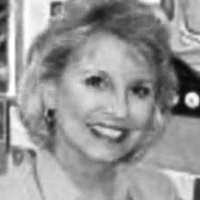This text-based course is a transcript of the webinar, “Creating & Applying Auditory Goals in SLP Hearing Loss Lessons,” presented by Denise Wray, Ph.D., CCC-SLP, LSLS Cert. AVT.
>> Denise Wray: I am professor emeritus from the University of Akron where I am currently working in the Auditory-Verbal Clinic. Most of my work is in clinical teaching and running a summer literacy class. I am working with Dr. Todd Houston currently on a new grant that develops a specialty in the area of hearing loss for speech language pathologists who want to specialize in that particular disorder. I still work with students, am very involved in the clinic, and enjoy it very much. I hope you will enjoy some of the wisdom I have to share with you.
How many of you are working currently with children who have hearing loss? How many are working with adults with hearing loss?
Today's themes that I would like to focus on are objectives of an auditory based philosophy. We are talking about maximizing the benefit of today's new technology. We are going to review quickly some evidence-based research so you do not think this is simply my opinion, but it is based on research that has been published and reviewed. We will quickly go through some auditory-based principles from the Auditory Verbal International, AG Bell, the Academy of Listening and Spoken Language. We are going to review Norm Erber’s Auditory Hierarchy and discuss some suggestions for auditory-based strategies and application. I will share an example of a commercial auditory curriculum, in case you are interested in such a tool, and also some resources and websites.
I want to show you how far we have come. On the back of the Volta Review, which is the research publication for the Alexander Graham Bell Association, there used to be a beautiful little baby with the mantra that said, “Imagine being deaf. Now imagine not being able to tell anyone. Test early.” Fortunately we have come a long way as far as that goes and all 50 states have newborn hearing screening. However, they do handle it differently and in fact, there are 14 states where parents can opt out of having their children tested. But the 50 states do have plans in place. Newborn hearing screening was passed in Ohio in 2004. Colorado is leading the way by being the most progressive.
Today's mantra for the AG Bell Association is “Hear from the Start, Talk for a Lifetime,” and that speaks volumes as we are discussing how things have changed today. One of Robert Kennedy’s favorite quotations was “Some see things as they are and ask, why? Others dream things that might be and ask, why not?” I pose to you “Why cannot children with all degrees of hearing loss, including severe to profound, be able to learn to listen and speak?” In fact, they can.

